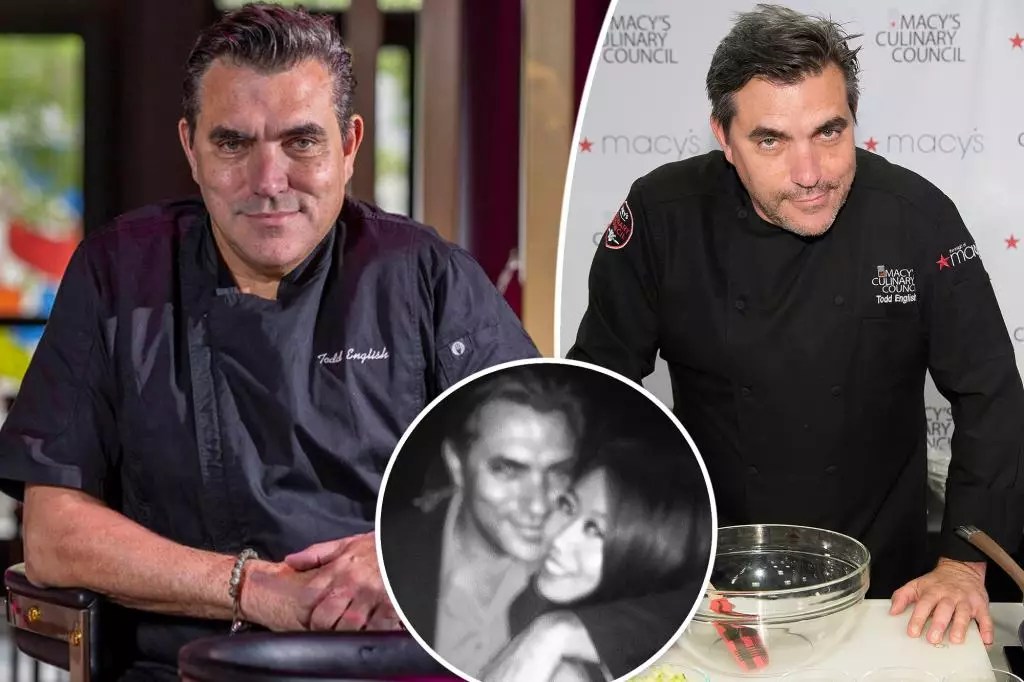In the world of culinary fame and success, few names resonate quite like that of Todd English. Known for his celebrated restaurants and television appearances, his recent legal troubles have cast a shadow over his career. A bombshell lawsuit has emerged, filed by Kelly Forman, a woman alleging horrific abuse after attending a social gathering hosted by English. This situation not only invites scrutiny of English’s personal life but also opens a broader conversation about the darker aspects of celebrity culture and the dynamics of power and consent.
Overview of the Allegations
Kelly Forman’s lawsuit paints a deeply disturbing picture. Filed in New York State Supreme Court, the amended suit alleges that in April 2015, she was assaulted by English and his ex-girlfriend, Wenjie Song. Forman claims she was drugged and subsequently suffered severe burns and nerve damage as a result of the events that unfolded. Her lawsuit describes a party at English’s loft where she enjoyed what was supposed to be a casual gathering but escalated into a nightmare.
At the heart of the lawsuit is an incident in which English allegedly forced himself on Forman multiple times despite her explicit verbal objections. This violation of consent, rendered even more troubling by the presence of Song, signifies not only a personal violation but highlights issues of complicity and enablers in abusive scenarios, which are often masked by the veneer of celebrity allure.
Forman’s account continues to detail events following the party, including a trip to a strip club, where it is alleged she was manipulated into circumstances she did not consent to. The psychological ramifications of such an experience can be profound, especially for someone like Forman, who already suffers from a traumatic brain injury due to an unrelated incident. The lawsuit asserts that this injury exacerbated her vulnerability and may have contributed to the perceived severity of her situation, causing increased disorientation and migraine episodes during her interaction with English and Song.
Upon waking up after the party, Forman discovered horrifying injuries, including severe burns and a vaginal tear, raising serious questions about the nature of her treatment that night. The physical evidence presented in court—a record of third-degree burns and nerve damage—serves not just as a personal testimony but as critical evidence in a lawsuit that is poised to challenge notions of celebrity immunity.
This scandal sheds light on critical issues permeating not only Hollywood but the culinary world and beyond: the intersection of fame, power imbalance, and sexual violence. English is not the first celebrity to be accused of abusive behavior, and each new case reopens wounds for those who have suffered similar violations in silence. The belief that celebrity status provides immunity is slowly being dismantled, with survivors like Forman seeking justice against individuals they may have once idolized.
Additionally, this case comes on the heels of movements like #MeToo, which have empowered survivors to share their stories and seek accountability, even in instances that occurred years prior, thanks to legislative changes like the Adult Survivors Act in New York.
In response to Forman’s allegations, English’s representatives have adamantly denied any wrongdoing, framing the lawsuit as a “frivolous money grab.” This typical response from those in the public eye when faced with accusations reflects a troubling tendency to dismiss and belittle survivors’ claims, often prioritizing reputation over accountability. The statements made by English’s legal team signal a battle ahead—not just in court, but in the public arena where perceptions and narratives can shift drastically based on media portrayal.
As Kelly Forman pursues justice against Todd English and Wenjie Song, her case serves as a critical reminder of the complexities surrounding allegations of sexual assault. The lawsuit confronts the sometimes unbridled nature of celebrity culture where accountability is often evaded. For survivors like Forman, the journey toward healing and restitution is fraught with challenges, yet essential for societal change. The hope remains that each case, including this one, ripples through the cultural conversation, encouraging not only recognition but robust action against abuses rooted in power dynamics.
More than just a legal fight, the case against Todd English encapsulates the ongoing struggle for all survivors: to reclaim their narratives, seek justice, and ensure that the scales of accountability tip ever so slightly towards the side of those who have long been silenced.







Leave a Reply